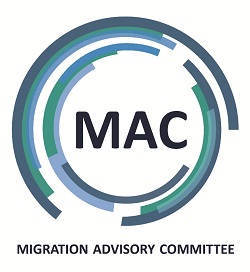The government has delivered on its manifesto promise to strengthen the independent Migration Advisory Committee (MAC), a key component of the new joined-up approach to reduce net migration.
In changes confirmed by the MAC today (Tuesday, 17 December), from January 2025, Professor Brian Bell will take on his role as Chair of the Migration Advisory Committee on a full-time basis from his current two days a week until the end of his term in 2026. Dr Madeleine Sumption will take on a new role as Deputy Chair for an initial 12 months, with her time working for the MAC increased to an average of 1.5 days a week, up from her current two days per month.
Additional staff will also be deployed to the MAC to work more strategically to forecast future trends and continue to review and provide independent, evidence-based recommendations on key areas of the immigration system.
Figures published by the ONS last month revealed net migration is four times higher than it was five years ago, driven by record levels of overseas recruitment. Delivering on the Plan for Change, the government has committed to restoring order to the immigration system by linking our immigration, skills and visa systems to support the UK’s domestic workforce, end reliance on overseas labour, and boost economic growth.
The committee will also work closely, as part of the ‘quad’, with the newly formed Skills England, the Department for Work and Pensions and the Industrial Strategy Council to develop an evidence-based approach to reduce international recruitment and ensure businesses are recruiting primarily from the homegrown workforce.
The strengthening of the MAC was confirmed in the organisation’s annual report, which will now be considered in detail. As the Prime Minister has announced, the government will also introduce an Immigration white paper in 2025 setting out further details of the government’s plan to reduce legal migration.
Seema Malhotra, Minister for Migration and Citizenship, said:
Net migration quadrupled in the past five years and we have been clear that we will get the numbers down and restore order to our broken immigration system as part of our Plan for Change.
The independent Migration Advisory Committee will play a central role in this – providing impartial analysis to underpin our joined-up approach to link skills, migration and labour market policy and end ensuring immigration is no longer used as an alternative to homegrown talent.
It is vital that the MAC is equipped with the resources it needs to perform this important role, and I would like to welcome Professor Bell and Dr Sumption to their enhanced roles as the committee continues its important work.
Professor Brian Bell, Chair of the Migration Advisory Committee, said:
I am delighted to take on my role full-time. As the government seeks to link skills and migration policy more closely, the committee will use our expanded capacity to continue providing timely, evidence-based recommendations on migration.
We also look forward to collaborating with partners in our new remit as part of the government’s quad framework.
I am also pleased to welcome Madeleine to her new role as Deputy Chair. Her extensive experience and expertise remains invaluable to the committee.
The Migration Advisory Committee (MAC) is an independent, non-statutory, non-time limited, non-departmental public body that advises the government on migration issues.
Professor Bell is a world-leading economist and has been a Professor of Economics at Kings College London since 2017. He was appointed chair of the MAC in 2020, following a period as Interim Chair and has been a member since 2018.
Dr Sumption is the Director of the Migration Observatory at the University of Oxford, which provides impartial analysis of migration in the UK. From 2017 to 2022, she was Chair of the Migration Statistics User Forum, which brings together producers and users of migration data.
The strengthening of the MAC comes after the Home Secretary commissioned a review of shortages of homegrown workers in key sectors, particularly IT and engineering. As part of this, the MAC will also routinely monitor and proactively highlight key sectors where skills shortages have led to surges in recruitment from overseas and provide yearly assessments to the government.



